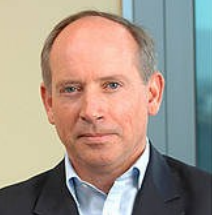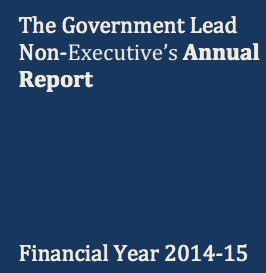
The Civil Service isn’t a business. Yet it is constantly being asked to become more business-like in the delivery of government objectives.
Non-executive directors come from outside government to support this. Many of us have senior experience running large, complex organisations; for example, I ran Kingfisher plc, the owner of B&Q, which had annual sales of £11 billion last year.
We do not become civil servants, nor are we like special advisers. Rather, we sit in between ministers and civil servants, offering independent advice and challenge to both. We are members of departmental boards, and most give far more time outside of the formal meetings to help the department.
You may not know, for example, that:
- a non-executive leads your permanent secretary’s’ annual performance appraisal
- non-executives have conducted many independent reviews for government, on subjects ranging from how departments manage their contracts, to how they manage large IT transfers
- that it is a non-executive who chairs your department’s Audit and Risk Assurance Committee, which looks at the main risks across the department and how they are being addressed
 I took over from Lord Browne as the Government Lead Non-Executive in April 2015. Before that, I was Lead Non-Executive at the Department for Work and Pensions for 4 years. I saw at first hand the commitment of civil servants delivering to citizens on the frontline. I know the importance of questioning leaders on practical deliverability: great ideas need to work on the ground.
I took over from Lord Browne as the Government Lead Non-Executive in April 2015. Before that, I was Lead Non-Executive at the Department for Work and Pensions for 4 years. I saw at first hand the commitment of civil servants delivering to citizens on the frontline. I know the importance of questioning leaders on practical deliverability: great ideas need to work on the ground.
My role now is to co-ordinate the efforts of the 70 non-executive directors across central government departments.
In the last 3 months, I have met with many civil servants, ranging from Sir Jeremy Heywood and John Manzoni, to those of you in board secretariat roles to directors-general. Encouragingly, Matthew Hancock, the new Minister for the Cabinet Office, has also expressed his support for the work of the boards and the non-executives.
I have been encouraged by what I have been told about where non-executives are adding value, and what they might do in the future. These discussions, together with the views of fellow non-executives, have fed into my priorities for the next 3 to 5 years.
As a result, I set out in my Annual Report, published today, my three priorities:
- to develop further the broader understanding of the role and value of the boards – for both civil servants and ministers, the experience and understanding of the value-add of boards does vary, and it is important to communicate how they can contribute to better delivery
- to concentrate on getting the best non-executives possible – non-executives need to have the specific skills that the various departments need, and to be drawn from a high-quality and diverse pool. I am particularly keen to add to the pool of potential candidates, skills in digital, audit, HR and talent management
- to bring together and co-ordinate the efforts of the non-executives – their efforts must not be spread too thin; we are going to focus on 5 cross-cutting priorities, where we think we can add most value:
- talent management
- business plans
- arm’s length bodies
- major projects
- risk management
These support the Civil Service reform priorities of Sir Jeremy Heywood and John Manzoni. We will work in partnership with those in departments and at the centre, such as the Major Projects Authority, who are leading on these priorities. We want to make a real difference – for the better – to the way that Whitehall works. Please call on us to help that happen.
If you want to find out more about the work of non-executives, or to get in touch with me, please contact the board secretariat in your department, or Fiona Hoban at the Governance Strategy Team in the Cabinet Office: fiona.hoban@cabinetoffice.gov.uk.
